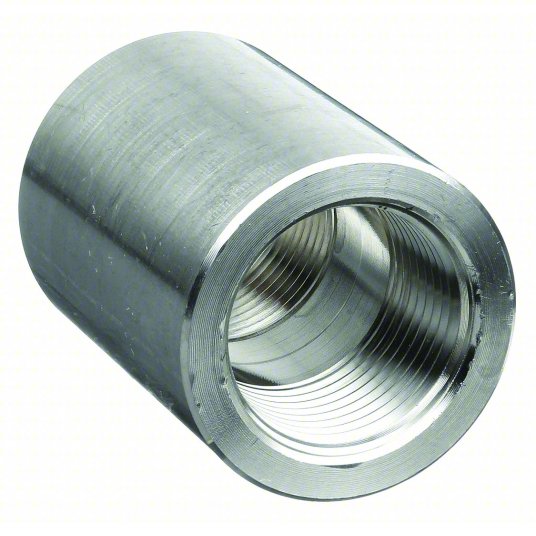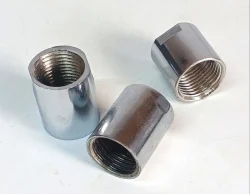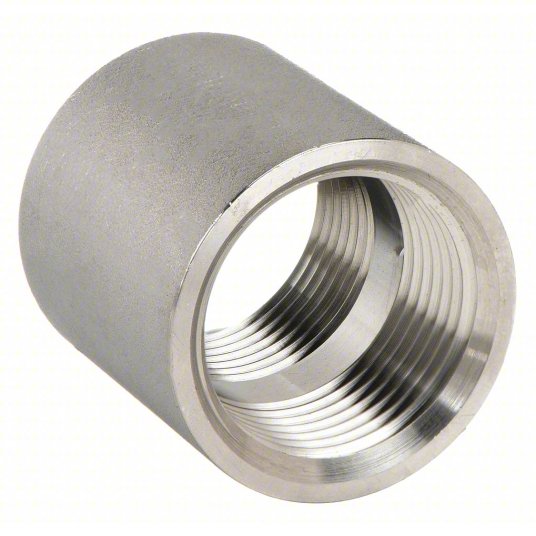Product Description
Product Description
CNC Machining Milling Turning Aluminum Stainless Steel Low Force Link Slimline Strain Sensor Connect Body Liner Stage Liner Stage Thread Adaptor Beam Coupling
Product Parameters
| Processing | CNC Machining, CNC Milling and Turning, Drilling, Grinding, Stamping, Tapping, Bending |
| Surface Finishing | Electroplating, Anodizing, Polishing, Chrome Plating, Zinc plating, Nickel plating, Electrophoresis, Sandblasting, Passivation, Powder Coating, Painting, etc. |
| Certification standards | ISO9001:2015 IAFT16949:2016 |
| Service type | OEM and ODM |
| Tolerance | +/-0.005mm |
| Surface Roughness | Ra0.8 |
| Dimensions | According to Customer’s Drawing |
| Processing Equipments | CNC Machining Center, CNC Milling Machine, CNC Turning Machine, CNC Gantry, Vertical CNC center, Horizantal CNC center, Drilling Machine,Grinding Machine, etc. |
| Testing Equipments | CMM,Laser Precision Detection Projector, Pull Tester, Automatic Optical Inspector, Salt Spray Tester, Durometer, Tensile Machine Calipers |
| Application | Automotive industry, Medical DeviceS, UAV Industry, Communication Electronics Appliance, Robot, Mold Components Processed and Fixrure, 0il, Gas and Other Heavy Equipments. |
| Drawing Format | PDF/JPEG/AI/PSD/CAD/Dwg/Step/LGS |
| MOQ | 1 piece |
| QC Policy | 100% inspection with report, random inspection before shipment, third-party inspections can be provided CHINAMFG request |
| Packaging | PE bags or bubble bags, boxes, cartons, pallet or as per customers’ requirements |
| Trade Terms | EXW, FOB, CIF, As per customers’ request |
| Payment Terms | L/C, T/T, D/P, Western Union, Paypal, Money Gram, etc. |
| Delivery Time | 7-14 working days after deposit payment received for samples,official orders negotiable |
| Production Capacity | 1000000pcs/Months |
Company Profile
Production Line
Equipments List
Certifications
FAQ
1: Are You a Manufacturer?
Yes, we specialize in manufacturing of CNC machining parts over 20 years.
2. When Can I Get the Price?
Quotation will be provid within 24 hours after inquiry is received with full product information and drawing.
3: How Long is Your Delivery Time?
It’s depends on the products requirements ang quantity. Normally the mass order lead time is around 14-20days.
4: How Can You Asure the Quality?
100% inspection and we could provide full inspection reports as customer requests before shipment.
5: Do You Provide Samples ?
Yes, we can provide samples, please provide full product information and drawing.
6: Why Choose Us?
We have advanced technology and equipment, world-class team for techincal and aftersales service. We provide high quality product ,competitive price with fast lead time
/* January 22, 2571 19:08:37 */!function(){function s(e,r){var a,o={};try{e&&e.split(“,”).forEach(function(e,t){e&&(a=e.match(/(.*?):(.*)$/))&&1

Can Stainless Steel Couplings Withstand High Torque and Heavy Loads?
Yes, stainless steel couplings are designed to withstand high torque and heavy loads in various industrial applications. Stainless steel is known for its excellent mechanical properties, including high strength and durability, making it well-suited for coupling systems that experience significant loads.
Stainless steel couplings are available in different designs, such as rigid couplings, flexible couplings, and beam couplings, each offering specific benefits in terms of torque transmission and load-carrying capacity.
Rigid Stainless Steel Couplings: Rigid couplings provide a solid connection between shafts and are ideal for applications where precise shaft alignment and torque transmission are crucial. They can handle high torque and heavy loads without any noticeable deformation or backlash. Rigid couplings are commonly used in machinery that requires precise motion control and accurate synchronization.
Flexible Stainless Steel Couplings: Flexible couplings, also known as misalignment couplings, can accommodate some degree of shaft misalignment while transmitting torque and handling heavy loads. They are designed to maintain a constant velocity ratio even in situations where shafts are not perfectly aligned. Flexible stainless steel couplings can help reduce stress on bearings and other components by compensating for misalignments and dampening vibrations, making them suitable for various industrial machinery and power transmission systems.
Beam Stainless Steel Couplings: Beam couplings are a type of flexible coupling that uses a helical cut in a stainless steel beam to provide flexibility. They are capable of handling high torque and moderate misalignments while maintaining a compact design. Beam couplings are commonly used in motion control systems, encoders, and other precision equipment that requires torque transmission with minimal backlash.
The load-carrying capacity and torque handling capability of stainless steel couplings depend not only on the design but also on the specific grade and size of the coupling. When selecting a stainless steel coupling for high torque and heavy load applications, it’s essential to consider factors such as the operating environment, shaft sizes, misalignment requirements, and overall system specifications.
In summary, stainless steel couplings are well-suited for applications that require withstanding high torque and heavy loads. Proper selection and installation of the appropriate coupling type and size will ensure optimal performance and reliability in demanding industrial settings.

Differences Between Stainless Steel Couplings and Aluminum or Carbon Steel Couplings
Stainless steel couplings, aluminum couplings, and carbon steel couplings are commonly used in various industrial applications, but they differ in their material properties, performance characteristics, and suitability for specific environments. Here are the key differences between these types of couplings:
- Material Composition:
- Corrosion Resistance:
- Strength and Durability:
- Weight:
- Temperature Tolerance:
– Stainless Steel Couplings: Stainless steel couplings are made from alloyed steel containing a minimum of 10.5% chromium. This chromium content creates a passive oxide layer that provides excellent corrosion resistance.
– Aluminum Couplings: Aluminum couplings are made from aluminum, a lightweight metal known for its high strength-to-weight ratio. Aluminum offers good corrosion resistance but is not as resistant as stainless steel.
– Carbon Steel Couplings: Carbon steel couplings are made from plain carbon steel, which has a higher carbon content. While carbon steel offers good strength and toughness, it is more susceptible to corrosion than stainless steel or aluminum.
– Stainless Steel Couplings: Stainless steel couplings offer the highest level of corrosion resistance among the three materials. They are well-suited for use in corrosive environments, such as marine applications or food processing, where protection against rust and chemical exposure is essential.
– Aluminum Couplings: Aluminum couplings provide moderate corrosion resistance, but they are not recommended for highly corrosive environments or applications with exposure to acidic or alkaline substances.
– Carbon Steel Couplings: Carbon steel couplings have the lowest corrosion resistance of the three materials and may require additional coatings or treatments to protect against rust and corrosion.
– Stainless Steel Couplings: Stainless steel couplings offer excellent strength and durability, making them suitable for heavy-duty applications and environments with high mechanical loads.
– Aluminum Couplings: Aluminum couplings are lightweight and have good strength but may not be as durable as stainless steel or carbon steel couplings.
– Carbon Steel Couplings: Carbon steel couplings provide good strength and toughness, but they may not be as durable as stainless steel couplings in corrosive environments.
– Stainless Steel Couplings: Stainless steel couplings are heavier than aluminum couplings but comparable to or slightly lighter than carbon steel couplings.
– Aluminum Couplings: Aluminum couplings are the lightest among the three materials, making them suitable for applications where weight reduction is a priority.
– Carbon Steel Couplings: Carbon steel couplings are heavier than aluminum couplings but offer higher strength and load-bearing capacity.
– Stainless Steel Couplings: Stainless steel couplings can withstand a wide range of temperatures, making them suitable for both high-temperature and cryogenic applications.
– Aluminum Couplings: Aluminum couplings have good thermal conductivity but may not be suitable for extremely high-temperature applications.
– Carbon Steel Couplings: Carbon steel couplings have good temperature tolerance but may be limited in extremely high-temperature or cryogenic environments.
The choice of coupling material depends on the specific requirements of the application, such as the operating environment, load capacity, and corrosion resistance needed. Stainless steel couplings are often preferred for applications where corrosion resistance and durability are paramount, while aluminum couplings are chosen for their lightweight properties. Carbon steel couplings find use in applications requiring good strength and moderate corrosion resistance.

Industry Standards and Certifications for Stainless Steel Couplings
Yes, there are industry standards and certifications that govern the manufacturing and performance of stainless steel couplings. These standards ensure that the couplings meet specific quality and safety requirements for various applications.
Some of the common industry standards and certifications for stainless steel couplings include:
- American National Standards Institute (ANSI): ANSI sets standards for various industrial components, including couplings. ANSI standards ensure the couplings’ dimensional accuracy, material quality, and performance characteristics.
- International Organization for Standardization (ISO): ISO provides globally recognized standards for couplings, among other products. ISO standards cover areas like coupling design, materials, and manufacturing processes.
- American Society for Testing and Materials (ASTM): ASTM standards define the material properties and testing procedures for stainless steel couplings, ensuring their durability and reliability.
- European Committee for Standardization (CEN): CEN develops European standards for couplings, adhering to the European Union’s regulations for quality and safety.
- Underwriters Laboratories (UL): UL is a certification organization that tests and certifies couplings for compliance with safety and performance standards. UL-listed couplings have undergone rigorous testing and evaluation.
When selecting stainless steel couplings, it is essential to ensure that they comply with relevant industry standards and carry appropriate certifications. These standards and certifications provide assurance of the coupling’s quality, performance, and safety, making them suitable for specific applications.


editor by CX 2024-03-08
